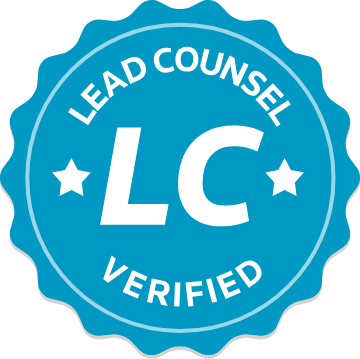Have you and your spouse decided to part ways? Getting a divorce is never easy, and the complicated litigation process can make it even more difficult. Even if the separation is amicable, the divorce process can be challenging, particularly when it comes to resolving disputes and reaching a fair settlement.
In California, couples going through a divorce can use mediation to help navigate the process without the stress and costs that accompany litigation.
This post thoroughly explores the divorce mediation process to help you understand if it is the right choice for you. We will go over everything from the benefits of mediation to preparation tips to get a fair outcome.
What Is Mediation?
Simply put, divorce mediation is a process where a neutral third party, called a mediator, helps a couple resolve their disputes to finalize the marital settlement agreement without going to court.
The mediator does not represent either party, but instead acts as a facilitator to help the couple communicate effectively and work towards a mutually acceptable solution. Mediation is voluntary and confidential, and the parties involved can terminate the process at any time.
During the process, the mediator assists the couple in generating options for resolving issues and helps them negotiate a final settlement agreement. Once the couple reaches an agreement, the mediator will prepare a written document outlining the terms of the agreement. This document can then be presented to the court for approval, and once approved, it becomes a legally binding agreement.
Mediation can be a valuable tool for couples going through a divorce in California, as it allows them to maintain control over the outcome of their case rather than leaving it in the hands of a judge.
How Does Mediation Differ From Other Dispute-Resolving Methods?
There are multiple differences between the methods that can be used to resolve a divorce dispute.
Mediation is a flexible process in which the parties work together to reach a mutually acceptable agreement. Other methods tend to be more adversarial, where each party tries to win their case or gain an advantage over the other.
Furthermore, mediation is a confidential process, meaning that what is said during mediation cannot be used in court or shared with others without the parties’ agreement. In litigation, court proceedings, motions, evidence, and other documents are generally public records.
Another major differentiating factor is the flexibility that mediation offers, as it can be tailored to the specific needs of the parties involved, such as scheduling around work or holding virtual sessions.
How Does Mediation Work?
Mediation involves three parties: you, your spouse, and the mediator. Everyone participating in the process has specific roles that we have explained below to demonstrate how mediation works in a divorce.

-
Role of the Mediator
The mediator’s primary role is to facilitate communication and negotiation between the two parties. The mediator does not take sides or make decisions, but instead helps the parties to identify and understand each other’s interests and concerns, clarify issues, generate options, and work towards a mutually satisfactory resolution.
The mediator also establishes ground rules for the mediation process, such as confidentiality, respect for each other’s perspectives, and good faith negotiation. The mediator may use various techniques, including active listening, reframing, summarizing, and reality testing, to assist the parties in their discussions.
-
Role of the Parties
In mediation, the parties are responsible for identifying their interests and concerns, exploring potential solutions, and making decisions about the outcome. The parties are encouraged to communicate openly and honestly, to listen to each other’s perspectives, and to work together towards a solution that meets their needs.
However, the expectations of the parties must align with the rules and regulations in California for a divorce.
The Steps Involved in a Mediation Process
Mediation is less complicated than other methods of dispute resolution during a divorce, but it does follow a series of steps outlined below:
Step 1: Initial Consultation
San Diego divorce mediation begins with the mediator introducing themselves and explaining the mediation process, including the specific issues that will be addressed throughout. They will be looking to establish whether divorce mediation is the right path for both you and your spouse.
In addition, the mediator will explain:
- Their role as a mediator
- Your legal rights
- Emotional readiness for mediation
- Anticipated cost and timeline
With this information, it becomes easier for you and your spouse to make an informed decision about whether you like to move forward with mediation.
Step 2: Mediation Preparation
After both of you agree to the terms and conditions of mediation, the mediator prepares for the process. There are several steps in the preparation phase, including conducting a financial overview, looking over standing custody agreements, analyzing any premarital agreements, and more.
The mediator begins this step by gathering documentation about your finances, taxes, and insurance to save you from making any assumptions. Since California is a community property state, all assets and other related factors, such as liabilities, are taken into consideration.
The mediator may ask both parties to provide other details in order to ensure they have all the required information for a successful mediation.
You might want to consult with a San Diego divorce attorney for legal advice regarding mediation; the mediator cannot provide individual legal help.
Step 3: Mediation Sessions
After gathering all relevant and necessary information, the mediator schedules your mediation sessions. The goal of these sessions is to negotiate the terms of your marital settlement and parenting agreement (for custody of the children).
By this time, most couples have a good sense of what they want in the agreement, and the mediator may begin by highlighting the important points. The mediation sessions focus on complicated family law matters where you are most divided.
Typically, a family law mediation session in California focuses on the following:
- Child support
- Child custody and visitation
- Alimony and spousal support
- Paternity issues
- Property/asset division
Step 4: Negotiations
This stage is the heart of mediation for divorce settlements. During the negotiation stage, both parties are separated into a room with their attorneys, and the mediator will visit them separately. The mediator here relays messages of both parties back and forth while determining the weaknesses and strengths in each party’s arguments.
The goal of the mediation process is to resolve disputes and find solutions that work for you and your spouse. With the mediator’s help, both parties can obtain a clear and objective view of the available options and settle on an acceptable compromise.
Step 5: Completion of Formalities
After both parties agree on all points of the settlement, the mediator completes the formalities of the process. Some people find it reassuring to have their attorneys review the final legal agreements before signing anything.
Step 6: Filing Divorce Paperwork
This is the last step of the mediation process. Once filed, there is a 6-month mandatory waiting period in California before the divorce is finalized.
There are some variations by county in the process of filing for a divorce in California. The professional family mediators and your attorney can help make sure everything is done correctly.
The Advantages of Mediation for Divorce-Related Disputes
Mediation is not mandatory under California law. Still, many couples choose it over other dispute-resolving methods. Here are some advantages mediation can offer when filing for a divorce.
-
It Is Cost-Effective Compared to Other Methods
Mediation is often less expensive than going to court. It provides a more collaborative and problem-solving approach to ending disputes, which can help to bring about a resolution quicker. That means less time missing work, less money spent on child care, less money paying lawyers, and so on.
-
It Keeps the Information Private and Confidential
The process of mediation is private, which means that the discussions and negotiations that take place are confidential. Privacy can be important for parties who want to keep their disputes to themselves or who are concerned about sensitive information being disclosed.
Additionally, because mediation is confidential, the parties may feel more comfortable sharing information they would not want to be made public in court.
-
It Gives You More Control Over the Outcome
In mediation, both parties have control over the outcome of the dispute because they are responsible for coming to an agreement that leaves them both satisfied. In court litigation, sometimes the parties are forced to accept a decision from a judge with no say in the matter.
Additionally, because the parties are actively involved in the resolution process, they may be more invested in the outcome and more likely to comply with the terms of the agreement.
-
It Saves You Time
Litigation is one of the most time-consuming methods to get a divorce. You must wait to get the case on the docket, for the attorneys to file motions and reply to motions, to hear the judge’s decisions, etc. On the other hand, mediation is less complicated and can be scheduled more quickly than a court case.
Ultimately, the mediation process can save a lot of time and effort for the parties involved, especially if the dispute is resolved quickly.
-
It Reduces Stress and Hostility
Mediation is usually less adversarial than going to court, which can reduce stress and hostility. In mediation, the parties are encouraged to work together to find a solution that works for everyone rather than trying to win at all costs.
Additionally, because mediation is less confrontational than going to court, it may be easier for parties to maintain a positive relationship with each other after the dispute has been resolved.
How to Prepare for Divorce Mediation in San Diego County
Preparing for mediation is an important step toward a successful and amicable divorce. Moreover, when you are well-prepared, it increases the chances of a fair outcome while keeping the costs and headaches to a minimum.
Here are some important tips to help you prepare for the overall process:
Know What You Want to Achieve
It is essential to clearly understand what you want to achieve in the mediation process. This could include issues such as property division, spousal support, and other related matters.
Be sure to make a list of your priorities and goals before you begin mediation, as it will help the mediator understand better what you expect as an outcome.
Understand the Issues Involved
Clearly understanding the issues involved is crucial to successful mediation. Some of the key issues to consider in a divorce context include the following:
-
Property Division
It includes all assets and debts acquired during the marriage, such as the family home, vehicles, bank accounts, investments, retirement accounts, credit card debt, and so on.
-
Child custody
It helps determine who will have legal and physical custody of any children, as well as a visitation schedule for the non-custodial parent.
-
Child Support
The mediation helps clarify the financial support that will be provided by the non-custodial parent to the custodial parent to fulfill the children’s needs.
-
Spousal Support
Finally, the process helps both parties determine whether one spouse will pay the other spousal support and, if so, how much and for how long.
Be Willing to Compromise
You opted for mediation for a reason, and it will require you to compromise in some places. Try to come into the process with an open mind. Be willing to consider alternative solutions and make concessions to reach an agreement that is acceptable to both parties.
Understand What Documents to Bring
There will be some documents that you must bring to the mediation process in order to get a fair settlement. Your attorney can advise you on the documents you must have handy.
These include:
- Tax returns for the past several years
- Bank account statements
- Investment account statements
- Retirement account statements
- Mortgage statements
- Credit card statements
- Car loan statements
- Property appraisals or valuations
You should also bring any relevant legal documents, such as your marriage certificate, prenuptial agreement, or any court orders related to your divorce.
Communicate Effectively and Be Prepared to Listen
Open and effective communication is essential during mediation. Make sure you are able to express yourself clearly and avoid personal attacks or accusations. It can be helpful to practice communication techniques beforehand, such as active listening and using “I” statements.
Besides communicating your thoughts, you must listen to what the other party has to say for the mediation to be successful. It will be helpful to approach the mediation process with an open mind and be receptive to the other party’s ideas and concerns.
Get Legal Advice on Divorce Mediation
While the mediator can help you reach an agreement, they cannot provide legal advice. It is a good idea to consult with an experienced divorce lawyer in San Diego, CA to understand your legal rights and to get advice on any proposed settlement.
They can also help you prepare for mediation by identifying potential areas of conflict and providing advice on how to approach the entire process.
Neumann Family Law APC Offers Mediation Services
Neumann Family Law A.P.C. is a well-established law firm known for its commitment to offering the highest quality legal representation and its track record of success.
Virtual mediation has become increasingly popular in recent years and allows parties to meet and negotiate without having to be in the same room. Neumann Family Law A.P.C. strives to assure that its virtual mediation services are of the best quality so everything goes smoothly.
The firm’s mediators can handle even the most complex disputes, and will work tirelessly to help parties reach a resolution that is acceptable to all involved.
In addition to their mediation services, Neumann Family Law A.P.C. also offers mediation services to other attorneys. Even if a client is not represented by Neumann Family Law A.P.C., they can still benefit from the firm’s mediation services. This is a unique aspect of the firm’s services, and it is highly valued by clients and attorneys alike.
The ability to mediate for other individuals is particularly helpful for attorneys who may have a conflict of interest or are unable to provide mediation services for their clients for various reasons. It ensures that clients have access to quality mediation services, regardless of their legal representation. This is a testament to the firm’s commitment to providing excellent legal services to all.
Neumann Family Law A.P.C. is a law firm that is dedicated to providing legal representation to clients across different industries. Our mediation services and ability to mediate for other attorneys are a testament to its commitment to innovation and excellence. Clients who work with the firm can expect top-notch mediation services that are facilitated by experienced mediators skilled at handling even the most complex disputes.
Considering Mediation for Your Divorce? Contact Neumann Family Law A.P.C. Today!
Compared to litigation, divorce mediation is a stress-free approach to reaching a resolution, but it has some challenges as well. Divorce can be a mentally draining process, and it is a must for every couple planning to get separated to comply with the California Family Code for divorce-related matters.
At Neumann Family Law A.P.C., we ensure you understand the divorce process. We will walk you through the legal and financial nuances of your divorce so you have a full picture.
From handling the paperwork to providing new perspectives and solutions, our California Family Law specialists stand strong with couples to guide them through conflict to resolution through mediation.
Speak to our mediators by calling 1-619-775-3568. Let us know you are interested in mediation when you call. We offer a complimentary consultation so you can explore your legal options.
Find more like this: California Divorce Law


























